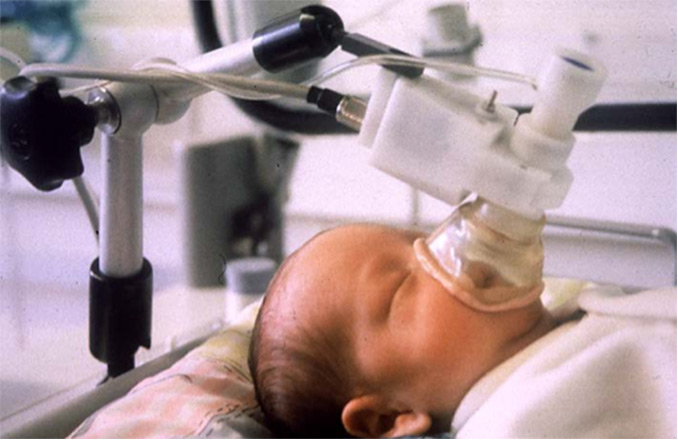Pulmonary Function Tests

Pediatric Pulmonologist in Nagpur - Dr. Shilpa Hazare
Pulmonary Function Test:
Lung tests are referred to as pulmonary function tests (PFTs). They demonstrate how well your lungs function. They’re noninvasive, meaning the doctor doesn’t cut you or insert any instruments into your body. Dr. Shilpa Hazare is one the most experienced Pediatric Pulmonologist in Nagpur who has 20 years of experience. She is well-known for his adaptability and patient-centred approach.
Infant Pulmonary Function Testing Quick Facts (iPFT)
- Infant pulmonary function testing (iPFT) is a method of determining how well newborns and toddlers breathe.
- Your child will breathe into a special machine, which will take measures of how much air is in his or her lungs.
- The iPFT is performed while the patient is sedated. That means your child will be given medicine to help him or her fall asleep throughout the exam.
- When sedative medication is required, there are certain dietary and drinking guidelines that must be adhered to in the hours leading up to the test.
- This test can be done as an outpatient procedure at Children’s Hospital’s Same Day Surgery Center or while your child is in the hospital.
- An iPFT takes roughly 1 1/2 hours in total, however, sedation drug recovery can take several hours.
Why are Pulmonary Function tests done?
These tests will be ordered by your doctor to examine how well your lungs are operating. If you already have a lung issue, your doctor may prescribe this test to determine how the condition is developing or how it is responding to therapy.
PFTs can aid in the diagnosis of:
- Muscle weakness in the chest wall
- Lung cancer
- Sarcoidosis is an inflammatory disease that affects the lungs, liver, lymph nodes, eyes, skin, and other body parts.
- Scleroderma is a connective tissue disease that affects people.
- Asthma \Allergies
- Respiratory infections caused by chronic bronchitis
- Fibrosis of the lungs
- Bronchiectasis is a lung disease in which the airways expand and widen.
- COPD, formerly known as emphysema, is a lung disease that affects people of all ages.
- Asbestosis is a disease caused by the inhalation of asbestos fibers.
What is an Infant Pulmonary Function Test?
Pulmonary function tests (pool-mo-NARE-ee) assess how well your child’s lungs are functioning. They evaluate the amount of air in the lungs, how rapidly it can move through the airways, and how rigid the lungs are. This information is critical for determining the cause of respiratory issues and determining whether existing therapies are effective. These tests can reveal whether your child’s lungs or airways are obstructed (blocked) in any manner as a result of asthma or other breathing disorders.
Lung function is examined in older children who can follow directions using a test called spirometry, which evaluates breath capacity when a kid breathes into a tube. Lung function is assessed via baby pulmonary function testing when children are too young — or incapable — to follow instructions (iPFT). While the kid is sleeping, the iPFT employs specialized equipment to assess lung function. iPFTs are quite safe and may be conducted on even the tiniest of children.
How is Infant Pulmonary Function Test Done?
- In a separate procedural room, the iPFT will take place. The doctor and a respiratory therapist will accompany the nurse or assistant. During the test, the nurse will use monitors to keep track of your child’s heart rate, breathing rate, blood pressure, and oxygen level. These monitors will not do any harm.
- To make your child sleepy, you will give him or her medicine by mouth. This drug takes 15 to 20 minutes to take action. You are welcome to stay with your child as he or she sleeps.
- After your baby has fallen asleep, he or she will be placed in a transparent plastic apparatus that will be used to obtain lung measures.
- A small strip of medical putty will be rolled into a cigar shape and squeezed around the edge of a soft plastic mask that will cover your child’s mouth and nose. The putty will form an airtight seal and ensure that the mask fits your child’s face perfectly.
- The mask will be linked to a computer that will monitor airflow. The computer will measure how much air is in your child’s lungs when he or she breaths into the mask.
- Your child’s chest will be covered with a vest. The vest will immediately inflate to form a “hug” around your child’s chest, allowing them to expel all of the air from their lungs. The doctor may use the mask to expand the lungs with extra air before the “hug.” The computer will determine how quickly air may enter and exit your child’s lungs.
- A breathing therapy, such as albuterol, will be administered through the mask to open your child’s lungs and breathing tubes. The tests will be repeated in order to track progress.
- Your child will not be harmed by the breathing tests.
Why Choose Dr. Shilpa Hazare?
Dr. Shilpa Hazare is a Pediatric Pulmonologist in Nagpur who provides a Pulmonary Function Test which is a painless breathing test that can help the doctor decide whether medication is required or any other treatments.

Dr. Shilpa Hazare
MD (Paed), DCH, DNB Consultant Neonatologist, Pediatric Intensivist, Pulmonologist, and Bronchoscopist.
- 20 Years Of Experience
- Special Interest In Pulmonology and bronchoscopy.
- Mon-Sat | 10 AM to 5 PM
